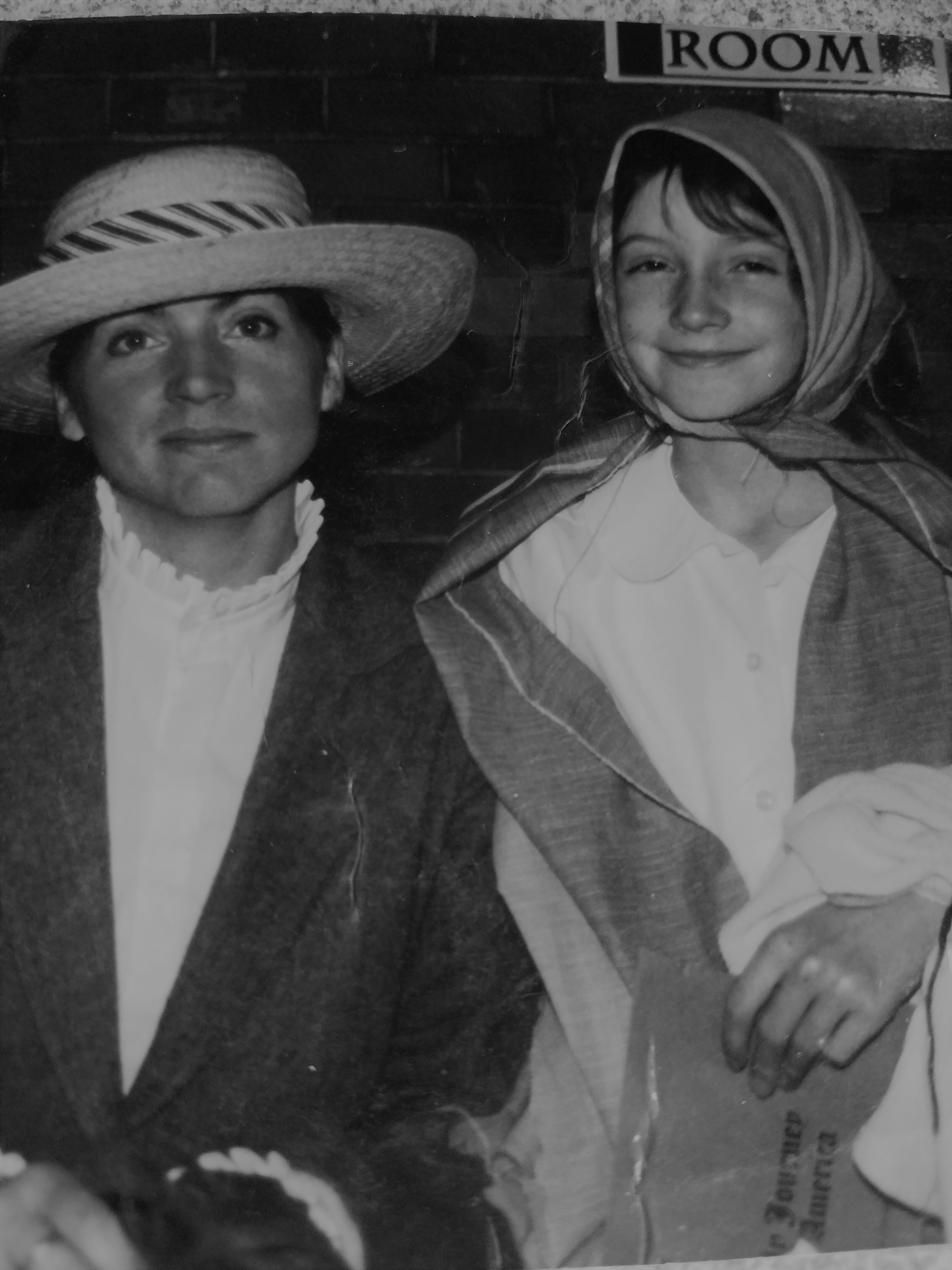
My maternal great grandmother came to the United States from Germany when she was just 14 years old. She traveled alone, sent with a small collection of items to begin her new life in America. I know almost nothing about her, except that she told my grandmother never to marry a German (a sweeping declaration I found confusing as a child). Today, generations later, my sole link to her is a dark, claw-footed table that sits in my sunroom. Some days I wonder why I didn’t ask more questions.
It’s hard NOT to think about one’s immigrant roots these days. It feels like a time to consider all the “what-if’s” and “but-for’s” of our cultural and national lineage.
I was born into a middle class family here in the United States of America. I didn’t have to haul water for my family or sell fruit in a market as a child. I went to school and learned how to read and write (arithmetic – well, I tried). I had enough food, shelter and love to grow. I had more than I needed.
As an adult, I’ve kept the middle class foothold I was granted at birth. My husband and I own our home and (with some help from family) our daughter has graduated from college debt-free (listen to my gigantic sigh of relief). No, we don’t summer in the Hamptons or belong to a country club, but we can afford Netflix and dinner at Constant Spring (as if anyone could ask for more).
Mine is a fairly ordinary American story. At least for a white American with a not-too-distant immigrant past. This nation has absorbed and nourished generations of immigrants. Although I say that with the knowledge that my German great grandmother visually “blended in ” to a majority-white America. Many immigrants from the countries identified and targeted by the current presidential administration don’t.
Admittedly (yes — ADMIT it), our past is littered with racial and ethnic transgressions that I can’t possibly do justice to here… but at least our rhetoric has tended toward generosity. In my lifetime, our national words have been of pride, but also of diversity and inclusion; of loyalty to country, but also of openness. We have celebrated the differences the world brings to our shores, our prairies, our purple mountain majesties.
But now, our language flirts with arrogance and aggression. Say it out loud, this new slogan: “America first!”. It reminds me of Shel Silverstein’s “Ladies First!” poem, the one about the little girl who demands to go first all the time. As you might guess, it doesn’t end well.
Say it again: “America first!”.

Does it feel right in your mouth? In your ears? Is this who you want to be?
Not me. It makes my bones heavy and my heart sag, this phrase. This way of being. This sending “back” of people who live among and with us, who came here for work or love or hope.
If the current political climate doesn’t hurt your heart (oh, please say it does), perhaps it should hurt your head. Both nationally and locally, we need immigrants. Just imagine Goshen without its many Latino-owned shops and restaurants. County-wide, we are short-handed in the labor market, with the RV industry in need of thousands of workers. At a recent luncheon in Goshen, the Chamber of Commerce president voiced concerns to Rep. Walorski about the potential negative economic impact widespread deportations could have in Elkhart County.
In short, forcing out significant numbers of our residents will weaken us. If we don’t stand up for and with our immigrant neighbors, we could lose them — some through deportation — and others because they seek out communities where they sense more support than we’ve mustered for them here.
Yes, now is the time to consider the “what-if’s” and “but-for’s” of our past.. and our future.
We should remember that, unless we claim to be Native Americans, we all have immigrant roots.
When we squelch our innate generosity, our souls shrivel, our lives shrink, and our capacity for reaching out with open arms slowly dies. We can make conscious efforts to open our hearts, expand our thinking, and nurture our relationships with those all around us. Even, and especially, with those with whom we disagree.
Thank you for your thoughts, Lois. It’s on point that you mention Native Americans. It should not be lost on anyone that as our nation is poised to deport those deemed unworthy of America, we simultaneously fight with the first Americans over land in North Dakota.
Thank you for this, Julia. I wish I’d looked more closely at that table when I saw you at Thanksgiving. It’s such a gift to have something tangible from our ancestors besides our genes. One can only imagine the people who sat around that table and what they ate and discussed over sauerbraten or spaetzle (depending upon what part of Germany they were from). The sentiment, the point, of your writing is so important to feel in this state of disbelief many of us find ourselves. Growing up on 8th Street in Goshen, there was an Italian or Greek war… Read more »
Mary, thanks for sharing those rich childhood memories of Goshen. I’ve always loved hearing your stories. You are so right, they are microcosmic of the American experience.
As for my great grandmother’s table. It wasn’t a dining room table, but a somewhat smaller all-purpose table. My grandmother said that when she was a girl, they used it to display their family Christmas tree.